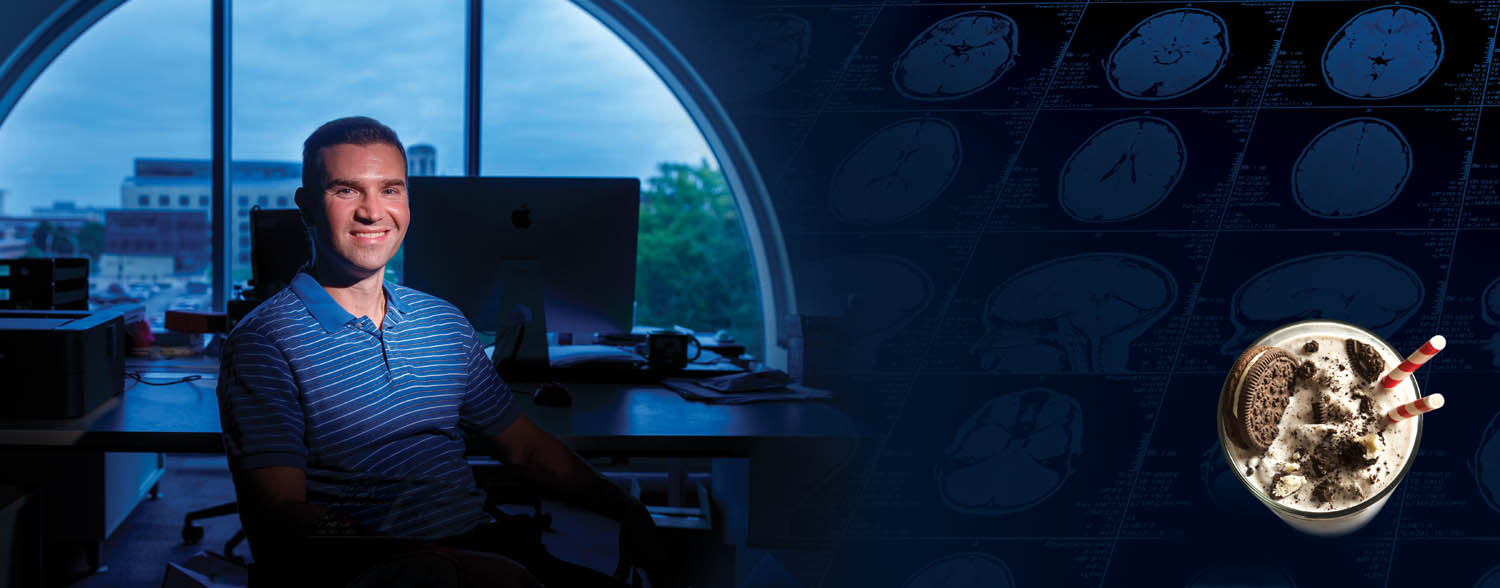Imagine getting a glimpse of a brain’s reaction to the first sip of a delicious milkshake. Is it characterized by calm self-regulation – or overexcitement?
Nebraska researchers are using this and other data as they study factors that affect adolescents’ and young adults’ health, with an eye toward finding intervention strategies to head off obesity, one of the nation’s most pernicious health problems.
Timothy Nelson, professor of psychology, received a five-year, $3 million grant from the National Institutes of Health’s National Institute of Diabetes and Digestive and Kidney Diseases for this research, conducted through Nebraska’s Center for Brain, Biology and Behavior.
At the center of this study is executive control, the brain’s ability to direct attention and behavior. The study began about 15 years ago and tracked the behavior of about 300 young people, now in their mid- to late teens. The research focuses on the link between executive control and risky health behaviors that may cause weight problems.
That’s where the milkshakes come in.
Cary Savage, the center’s director and a principal investigator on the project, said the research uses equipment that delivers sips of milkshake to subjects while they’re in a special scanner. Participants are given a cue to take a sip, then a cue to swallow. An MRI scanner studies the brain’s function during this process.
By better understanding how the brain responds to this sweet reward, researchers think they can find ways to train the brain’s executive control to help young people make better decisions about what they eat.
In the scanner, we can capture the neural activity patterns. We’re going to get these really interesting neural measures of response to food.
Timothy Nelson
Researchers also are studying self-regulation, tracking brain activity as subjects look at pictures of appealing food and imagine eating it but then think about the potential consequences of eating it, Savage said.
Nelson said subjects will be asked to down-regulate their responses in order to exercise self-control.
“Individuals differ greatly in how well they can do that,” he said. “In the scanner, we can capture the neural activity patterns. We’re going to get these really interesting neural measures of response to food.”
+ Additional content for Brain Holds Clues to Obesity Interventions
Nebraska news release: Nebraska researchers continue obesity intervention study

